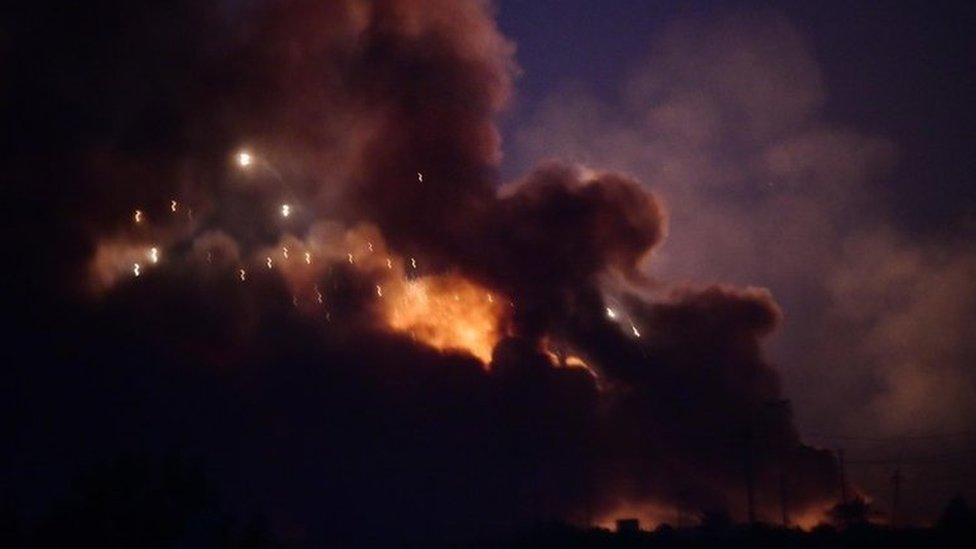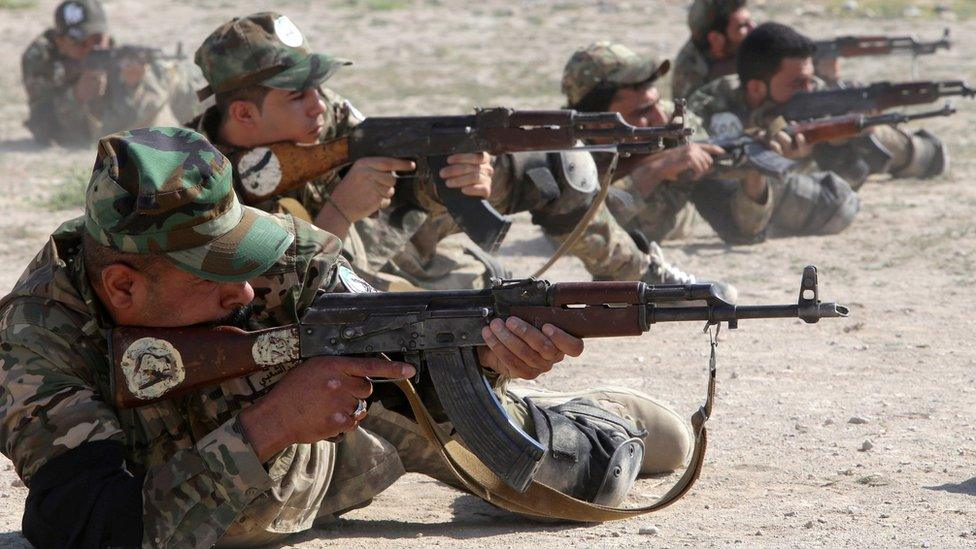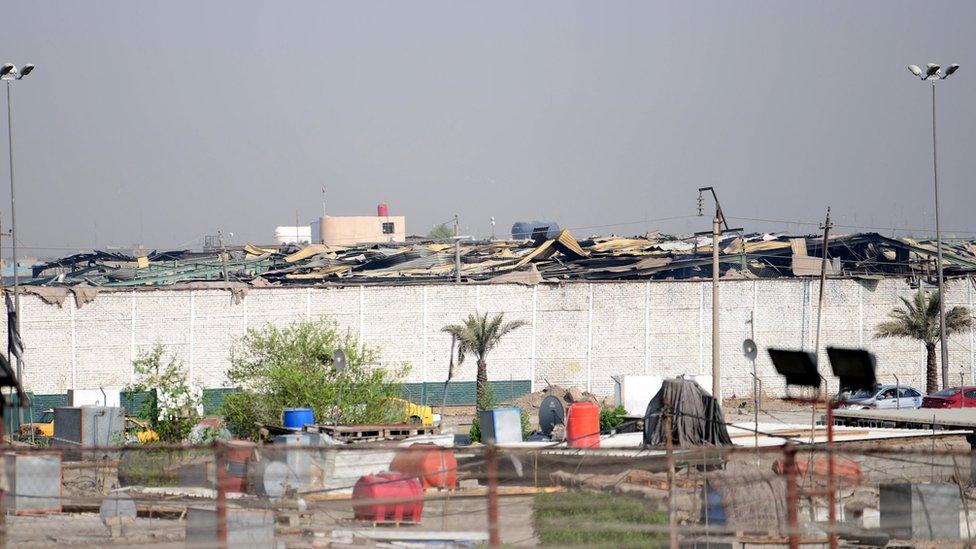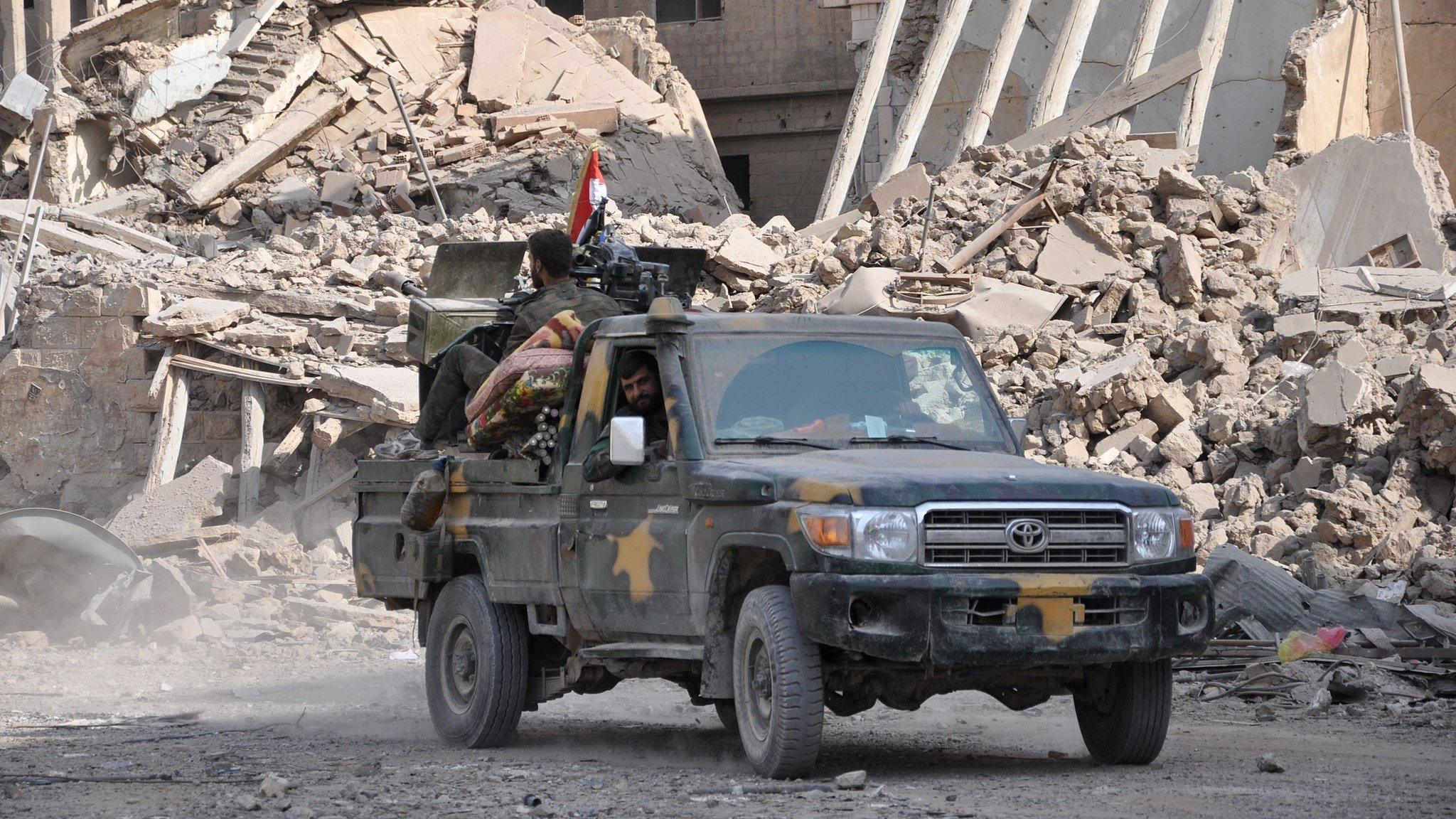Iraq paramilitary force blames US and Israel for mystery blasts
- Published

An explosion on 12 August near Baghdad sent rockets shooting though the capital
A powerful Iran-backed paramilitary force in Iraq has said it holds the US responsible for a series of blasts at its bases in recent weeks.
The deputy head of the Popular Mobilisation, which is dominated by Shia militias, alleged that US forces had brought four Israeli drones into the country to target its positions.
Abu Mahdi al-Muhandis said the force would use "all means at its disposal" to prevent and deter future attacks.
The US and Israel have not commented.
However, the US-led multinational coalition against the Islamic State (IS) group, which has facilities in Iraq, denied any involvement.
"The mission of CJTF-OIR in Iraq is solely to enable our Iraqi security force partners in the mission of an enduring defeat of [IS]," it said. "We operate in Iraq at the invitation of the government of Iraq and comply with their laws and direction."

The Popular Mobilisation's fighters played a key role in the war against IS in Iraq
On Tuesday night, a large blast hit a Popular Mobilisation arms depot near Balad airbase in Salahuddin province, about 80km (50 miles) north of Baghdad.
The exact cause is not yet known, but a Popular Mobilisation source told Reuters news agency that the depot was targeted by an aerial bombardment.
On 12 August, an even bigger explosion at a Popular Mobilisation arms depot at the al-Saqr military base near Baghdad killed one civilian and wounded 29 others.
The incident, which was blamed by some on hot weather and poor storage, prompted the Iraqi government to order all such facilities to be moved outside cities and to ban unauthorised military flights over Iraq - including by the US-led coalition.
Earlier on Wednesday, the Associated Press reported that an Iraqi government fact-finding committee had concluded the explosion was the result of a drone strike, external by an unidentified party.
An Israeli satellite imagery analysis company, ImageSat International, has said it was "probable that the explosion was caused by an air strike".
Allow X content?
This article contains content provided by X. We ask for your permission before anything is loaded, as they may be using cookies and other technologies. You may want to read X’s cookie policy, external and privacy policy, external before accepting. To view this content choose ‘accept and continue’.

Last year, Israel's then defence minister suggested that it might attack suspected Iranian military assets in Iraq, external, as it has done repeatedly in Syria since the start of the country's civil war.
When asked by reporters on Monday about the explosions in Iraq, Israeli Prime Minister Benjamin Netanyahu said: "Iran has no immunity, anywhere."
"We will act - and currently are acting - against them, wherever it is necessary."

Iraq's government banned unauthorised military flights over Iraq after the 12 August explosion
The Popular Mobilisation's fighters played a key role in the war against IS.
With the help of Iranian military advisers, weapons and funding, they prevented IS militants reaching Baghdad in 2014 and later helped Iraqi security forces regain control of the country.
The US, which also supported Iraqi security forces against IS, has said several of the Shia militias in the Popular Mobilisation are directly controlled by Iran. It has accused the militias of targeting US diplomatic facilities in Iraq, external and warned that they may have been given Iranian ballistic missiles.
The US has designated one of the militias in the Popular Mobilisation, Kataiib Hezbollah (Hezbollah Brigades), as a terrorist organisation.
It has also listed Abu Mahdi al-Muhandis as a "specially designated global terrorist". It alleges that he advises Iran's Revolutionary Guards and that he has been involved in the bombings of Western embassies and attempted assassinations in the region.
- Published18 June 2018
